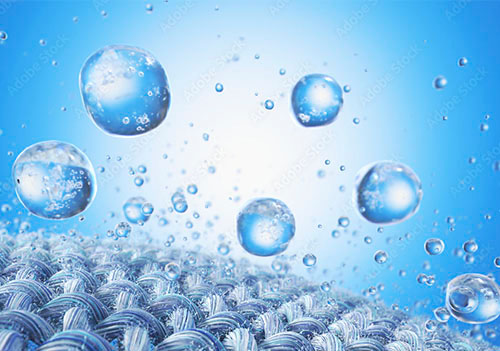KSIL®
Potassium Silicate
The soluble silicates in their different forms: amorphous glass, granular solids or liquid solutions, represent one of the most commonly used chemical products. Its industrial boom started in the 19th century, when ground-breaking applications in detergents, adhesives and refractory paints were developed. Its applications have been diversified today in different fields: detergents, paper, construction, paints, water treatment, industrial product raw materials; fields that cover applications both in industry and in consumer goods.
The procedures for its preparation and industrial production are based on a melting process above 1000ºC, normally from silica, in its quartz crystalline form and sodium or potassium carbonate, obtaining silicate in its amorphous crystal or glass form.
The silicate solutions, also called liquid silicates, are the mostly commonly used silicates. They are obtained in a second stage by dissolution of the amorphous crystal in water at a high temperature and pressure. There are other synthesis channels for products in solution, such as the direct attack of silica with caustic soda.
Products
KSIL® 2.2
Potassium silicate solution with ratio in weight of 2.2 and average density of 1.314 g/cm3 (34.5º Be). It is a highly consumed soluble potassium silicate. It is used in sectors such as construction, restoration, mineral paints and electrodes. It is obtained from the pressurised solution of soluble glass from the melting furnace and subsequent filtration. Other potassium formulations could be manufactured if requested by the customer. A table is enclosed with other representative potassium products in IQE.
Markets it targets:
KSIL® C/2.2
Soluble potassium silicate in the form of an amorphous solid or liquid glass, with a weight ratio of 2.2. Obtained at the exit of the melting furnace during the first stage of production, it is mainly used internally as a raw material to prepare solutions subsequently used to prepare electrodes and mineral paints.
Markets it targets:
KSIL® 34
Aqueous solution of the potassium salt of polymerised silicic acid. Its density is 1.32 g/cc and it is used as a source of silica and potassium for plants while increasing resistance to environmental factors and may have a preventive effect against fungal growth.
Markets it targets:
KSIL® 46
Aqueous solution of the potassium salt of polymerised silicic acid. Aqueous solution of the potassium salt of polymerised silicic acid. Its density is 1.46 g/cc and has a high SiO2 content (28%). It is used as a source of silica and potassium for plant fertiliser.






